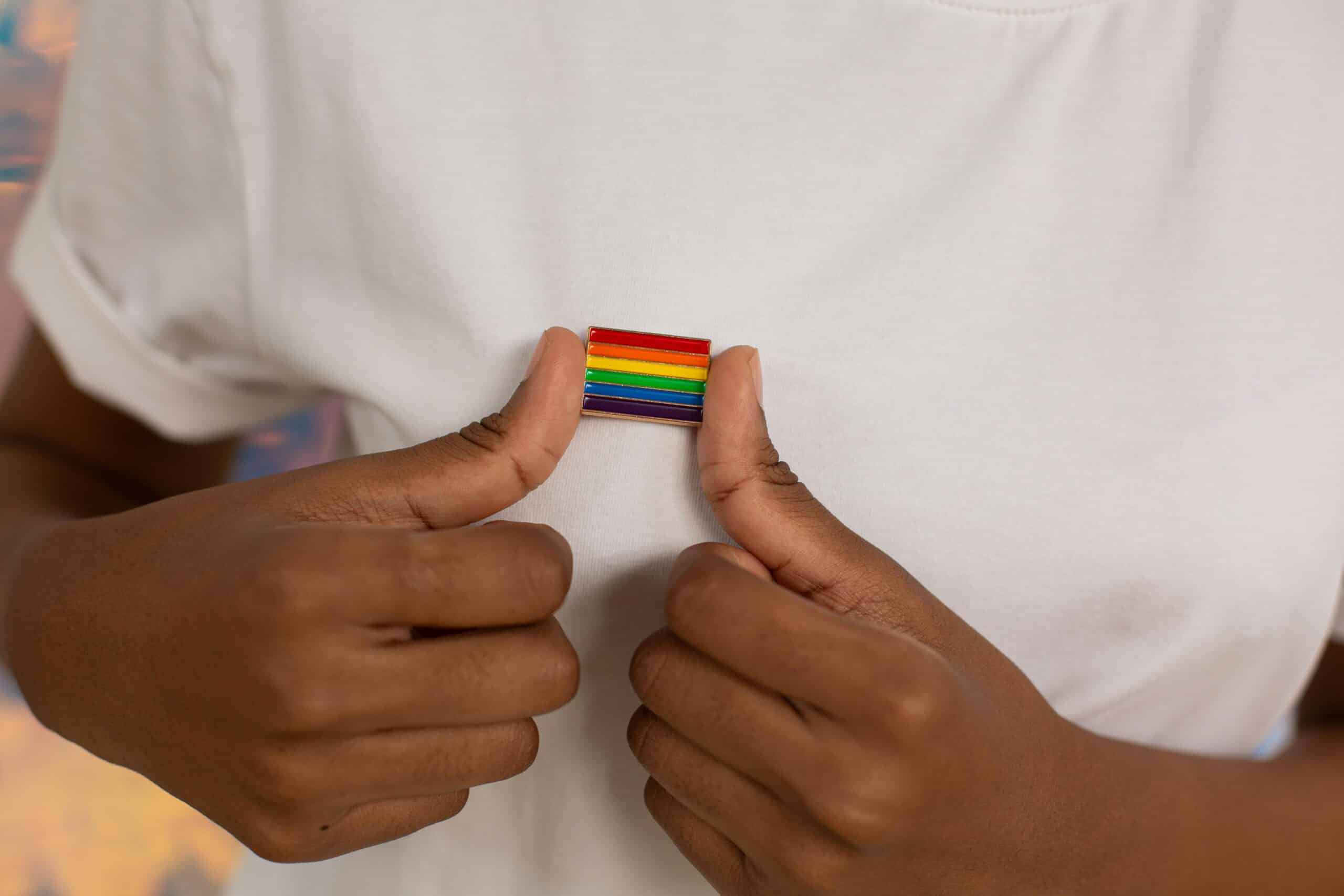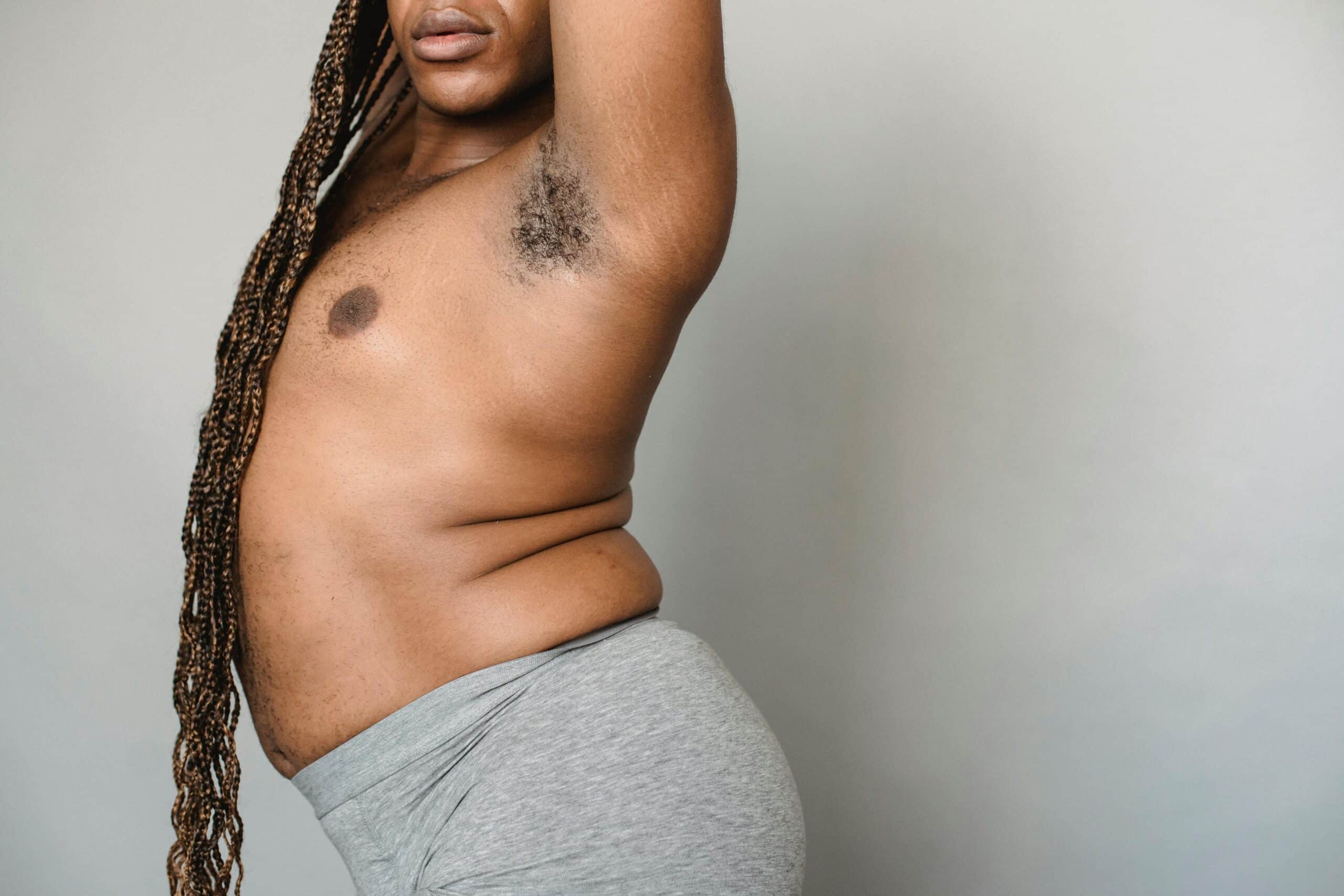
We live in a world filled with gender and beauty stereotypes, which do not make life any easier. Some people, however, suffer from these stereotypes even more—trans women, in particular, bear a significant burden.
In this article, we’ll explore strategies you can use to challenge these stereotypes and foster a more supportive, respectful environment for transgender people.
Hyperfeminine Expectations
One common gender stereotype is that trans women should look exactly like cisgender women. Many people assume that if someone assigned male at birth decides to transition and live as a woman, they must adopt a fully feminine appearance —wear makeup, have long hair, wear heels and dresses, speak in a feminine voice, etc.
However, not all individuals assigned female at birth appear traditionally feminine. Not every woman fits beauty standards; some may have a different body type, prefer baggy clothes, or choose not to wear makeup. So why does society place such high expectations on trans people?
It’s important to remind yourself and others that trans women are women if they identify that way. They don’t need to wear long, fancy nails or have a perfectly feminine voice to “prove” their identity. Every person is free to present themselves however they wish, regardless of their assigned sex at birth.
Each of us should listen to our inner selves and aim to be our most authentic selves—this is far more important than trying to meet unattainable beauty standards. If you hear someone openly discussing the feminine (or not feminine) features of a trans woman, gently remind them that discussing someone else’s appearance is inappropriate and suggest they change the topic.
Sexuality Assumptions
One of the most common stereotypes about trans women is the assumption that they are straight and interested only in relationships with cisgender men. In reality, trans women, like anyone, can have a range of sexual orientations—they may be heterosexual, homosexual, bisexual, pansexual, asexual, and more.
When speaking with a trans woman, avoid asking what types of men attract her or assuming she is interested in men. Instead, you could ask a more general question without emphasizing gender identity or sexual orientation.
For example, rather than asking, “What are you looking for in cisgender men?” say, “How would you describe your ideal romantic partner? What qualities are most important to you?” This way, you can learn more about the person without making assumptions or causing discomfort.
There is also a gender stereotype that transgender people are just gay men who like to dress as women. This stereotype doesn’t make sense. Gay men are gay men. Transgender people can be gay, straight, bisexual, or identify in other ways. Gender identity and sexual orientation are two different concepts and can’t be used interchangeably.
Transitioning Timeline
When most people talk to trans women, they suppose that these women have already had surgery and completed hormonal treatment. Such gender stereotypes are also very harmful because they increase the burden that transgender people experience—they feel the urge to transition as quickly as possible, even though they know that it’s a long process.
Also, keep in mind that not all transgender people can afford gender reassignment surgery. In some countries, surgery and related services are extremely costly.
Insurance companies don’t offer much help in addressing this issue either. Many policies list “services related to sex change” or “sex reassignment surgery” among their exclusions, denying coverage to transgender people.
Because of these exclusions, many trans people travel to Thailand, Argentina, and Serbia to find more affordable medical services to complete their transition. These countries provide high-quality, accessible options for gender-affirming surgery, making them appealing to those facing financial and insurance barriers at home.
So when you meet transgender women, don’t ask them about the medical nuances of their transition. Don’t make any assumptions regarding the medical services they have or haven’t accessed. Normally, you don’t ask people whether they have gone through an appendectomy or other medical procedures, do you? So be mindful of your questions, and respect transgender people and their medical transition journey.
Passing
When we talk about stereotypes affecting trans women, we can’t avoid mentioning the concept of “passing.” Passing refers to the ability of a transgender woman to be perceived as a cisgender woman by others. In other words, if you meet someone and can’t tell whether they have a trans experience (based on appearance, mannerisms, voice, etc.), then that person is considered to “pass.”
Some transgender people wish to pass, while others don’t. Why? This desire is often driven by social pressures and stereotypes. Many transgender individuals want to pass in order to feel privileged, safe, and secure. However, the effort is not always worth it. Attempts to meet rigid beauty and gender norms raise stress levels, and some trans people report that they feel like they have lost their authentic selves. As a result, they may achieve the goal of being perceived as cisgender women but may not feel truly happy.
Other transgender people choose not to change themselves to pass. They don’t try to modify their appearance to fit perfectly feminine standards. These trans people accept themselves as they are, though they may still face social pressures and rude comments regarding their makeup, mannerisms, or voice.
Transgender Women “Trick” Others
As we have mentioned, some transgender women pass while others do not. And there is a misconception that transgender individuals want to pass to trick others.
The stereotype that transgender women “trick” others is not only misleading but also harmful. This misconception arises from the idea that transgender women aim to deceive people, particularly men, into thinking they are cisgender women. It’s often perpetuated by stereotype content (mainly social media stories) where individuals claim to have been misled after dating someone who has a transgender identity. This stereotype suggests that transgender women intentionally hide their identities, which simply isn’t true.
In reality, transgender people are just trying to live authentic lives and express themselves in ways that reflect their true gender identity rather than the sex assigned at birth. If a transgender woman chooses to wear makeup, long lashes, or elaborate hairstyles, it’s because those things help her feel beautiful and comfortable in her own skin, not because she is trying to “trick” anyone. These choices are about self-expression and confidence, not deception.
Not Being Able to Have Kids
Cisgender men who look for romantic relationships and hope to start a family often avoid dating transgender women. Those who are in romantic relationships with transgender women are sometimes advised against it by friends and family. This often happens because of the stereotype that transgender women can’t have children.
While it’s true that transgender women can’t bear children because they don’t have a uterus, they can still become loving, caring mothers. Depending on their and their partner’s preferences, transgender women have several options for becoming parents:
- Surrogacy
- Fostering
- Adoption
In addition, some transgender women have children from previous relationships with cisgender women. These biological children often support their parent’s journey toward gender identity change.
The idea that transgender people can’t fulfill parental roles is just another harmful stereotype. A transgender identity does not interfere with a person’s ability to be a great parent. If a trans person has a loving heart and wants to share that love with a child, they can be the best parent a child could have.
It’s also worth mentioning that scientists and surgeons are working on providing transgender women with the opportunity to carry children. They are exploring new technologies for uterus transplantation. These surgeries have already been successfully performed in women whose sex assigned at birth aligns with their gender identity. In the next ten years, these surgeries may become a possibility for transgender people as well.
Feminine Pronouns
Starting a conversation with the wrong pronouns is one of the quickest ways to make a transgender person feel disrespected. Many people mistakenly assume that they should use “she/her” when referring to all transgender women. However, the reality is that each trans person has unique preferences and chooses the pronouns that best reflect their gender identity.
While many transgender women do prefer “she/her” pronouns, some may choose “they/them” or other pronouns that align more accurately with their gender identity. It’s important to use the correct pronouns and respect other people’s choices.
When beginning a conversation, share your own pronouns and ask the other person for theirs. For example, you could say: “My pronouns are ___. May I ask what yours are?”. Trans people will appreciate your efforts to communicate respectfully, which can strengthen your interactions.
High Sexual Activity Levels
There’s a common misconception that people transition to enhance their sex lives, leading to the negative stereotypes that transgender people are overly focused on their sex life or have high levels of sexual activity.
These stereotypes are incredibly harmful, contributing to the sexual objectification and fetishization of transgender men and women. Just like cisgender people, trans people have varying levels of sexual activity. Some may have diverse sexual experiences, while others may have little to no sexual activity.
Transgender people are often viewed and treated merely as sexual objects, which can significantly impact their mental health. This is especially critical for transgender women seeking meaningful romantic relationships. They may go on numerous dates to find someone special, only to encounter individuals interested solely in a new sexual experience.
Transgender People Are Overly Emotional Because of Hormone Therapy
Transgender people go through many ups and downs in their lives, and hormone therapy is just one of many factors that may affect their emotional state. Consider the many challenges they face and the consequences of gender identity stereotypes they deal with:
- Gender dysphoria
- Inability to afford transition
- Social stigma
- Discrimination at work and in public places
- Stereotype content and negative comments on social media
- Difficulty finding a partner for romantic relationships due to objectification and fetishism
- Hormone therapy and its side effects
All of the stereotypes mentioned above are destructive in nature and negatively affect the emotional well-being of transgender people and their mental health overall.
How Can You Challenge These Negative Gender Stereotypes?
Do you understand that stereotypes applied to transgender individuals are unfair and harmful? Do you want to become an ally to trans people and challenge these stereotypes? Here is a quick guide for you.
Be Mindful About Making Comments and Compliments
First, avoid making comments about transgender people’s appearance or their femininity. If no one asks for your opinion, there’s no need to make any statements.
It’s also worth noting that some people accidentally make offensive comments while attempting to compliment transgender women. Here are a few examples of well-intentioned compliments that can go wrong:
- “Oh, you have such a beautiful hairstyle. It makes you look like a real woman.”
- “You look so feminine! Your body shape, makeup, and outfit are perfect! If you changed your voice, no one would guess you’re a transgender woman.”
Think twice before commenting or complimenting, and never compare transgender women to cisgender women.
Don’t Give Unsolicited Advice
This tip applies to all interactions with others, not only trans and nonbinary people. The golden rule is to never give unsolicited advice. If someone needs help, they will ask for it.
So when speaking with transgender people, avoid sharing beauty, fashion, or makeup tips (especially if you’re not an expert). When cisgender male partners suggest that transgender women use a different lipstick shade or wear higher heels, these comments often come across as rude and offensive.
Intervene When Someone Discusses the Appearance of Transgender Women
Every member of the transgender community deserves respect. If you notice someone commenting on the appearance of a transgender woman, acknowledge that this behavior is inappropriate. Remind them that everyone is unique and beautiful in their own way, and we should avoid making comparisons.
Don’t Share Stereotype Content
Modern users are often exposed to stereotype content, which poses significant issues. Stereotype content creates misconceptions about the gender roles and sexual identity of trans men and trans women. Consumption of such content result in sexual objectification, fetishization, social stigma and other transgender issues.
As an ally to transgender people, you should be aware of the harm that stereotypical content can cause. Encourage everyone to stop sharing such memes, posts, and videos. At the same time, you should promote content that supports the rights of transgender women, disproves gender stereotypes, and explains the phenomenon of gender dysphoria.
Don’t Critize Transgender People for Being Emotional
Do not criticize transgender people for the emotions they experience. Instead, show them that they can feel safe to cry or laugh in front of you if they feel that way.
One of the worst consequences of existing stereotypes is that some transgender people feel pressured to hide or suppress their emotions to appear “normal.” Naturally, at some point, they may burst into tears or act hysterically because they can no longer manage all those emotions.
If you see a transgender person struggling with their emotions, offer understanding and remind them that they’re free to feel and express what they need to. They are human, not robots, and their feelings are an essential part of who they are.
Put Yourself in Transgender People’s Shoes
Cisgender men and women may not fully understand the many challenges transgender people face. Imagine being judged for using public restrooms or being stared at in public spaces. Think about how you would feel if you lost a great job opportunity due to discrimination based on your transgender identity. Or imagine a partner breaking up with you because his family believes that trans women can’t be mothers or build families.
The social stigma surrounding transgender people makes their lives extremely challenging—and for some, even unbearable, leading to feelings of isolation and, in some cases, suicidal thoughts. By considering the world from their perspective, you can develop a better understanding and become a genuine ally to the transgender community.
However, it’s best to avoid statements like, “Oh, I understand what challenges trans people go through because of cultural stereotypes!” Cisgender people cannot truly comprehend the impact of gender dysphoria or the harm caused by these stereotypes.
Yes, you can acknowledge transgender people’s struggles and show support. But claiming to fully understand their experience is unrealistic. If your sex assigned at birth aligns with your gender identity, you are fortunate, and you can only imagine how your life might look if your sex assigned at birth were different.
Create an Inclusive Environment
If you’re a business owner or hold an administrative role, there are ways to make your environment more inclusive. For instance, if you own a restaurant, consider providing gender-neutral restrooms for transgender people. Or, if you work at a gym, suggest to your boss that a designated locker room for transgender women could offer a safe and secure space for changing and putting on makeup.
By addressing the issue of public accommodations, you create a space that promotes inclusion, respect, and equality. Providing transgender people with access to restrooms, lockers, and other private facilities is a win-win for everyone: transgender people gain the privacy they need, and those uncomfortable with transgender people have less ground to raise objections.
Why Is It Important to Challenge Negative Stereotypes?
Stereotypes affect the quality of life for transgender people by worsening social stigma and increasing social pressure. These factors negatively impact the mental health of trans men and women.
Preventing Mental Health Issues
When transgender women constantly receive unflattering comments about their appearance and lack of femininity, they experience increased stress, anxiety, and suffer from depression. In some cases, mental health issues can lead to physical health problems. For instance, depressed individuals are more likely to suffer from cardiovascular diseases and are at greater risk of engaging in behaviors that can lead to serious health complications, such as substance abuse, unprotected sex, or even suicide.
Avoiding Abusive Relationships and Sex Work
Trans people who experience stigma are at risk of becoming victims of abusive sexual relationships, domestic violence and sexual assault. When transgender women are under stress and pressure, they are more likely to enter abusive relationships or resort to sex work.
Unfortunately, transgender sex workers are more likely than other sex workers to encounter dangerous situations and often face abuse on the job. Gender stereotypes negatively impact them even in this aspect of their lives.
By challenging trans-gender stereotypes and promoting the mental representation of sexual minorities, you help foster a more welcoming environment for the transgender community. You contribute to the mental health of its members and their well-being and sexual health. And in regard to transgender students and other young people, this effort also significantly contributes to HIV prevention.
Making This World a Better Place
The stereotypes applied to transgender people are often negative, and their spread has harmful consequences not only for nonbinary people but for society as a whole. It’s crucial to challenge these stereotypes to prevent sexual objectification, inequality, and violations of rights. When all group members within society coexist peacefully and respectfully regardless of their gender identity, the overall well-being of the community improves significantly.
Wrapping Up
Gender identity stereotypes affect the everyday lives of trans people, and this is detrimental. We need to help transgender communities challenge these stereotypes and improve their mental representation. In the long run, these efforts will bring numerous benefits, including improving the psychological well-being and sexual health of not cisgender individuals, as well as effective domestic violence and HIV prevention.





